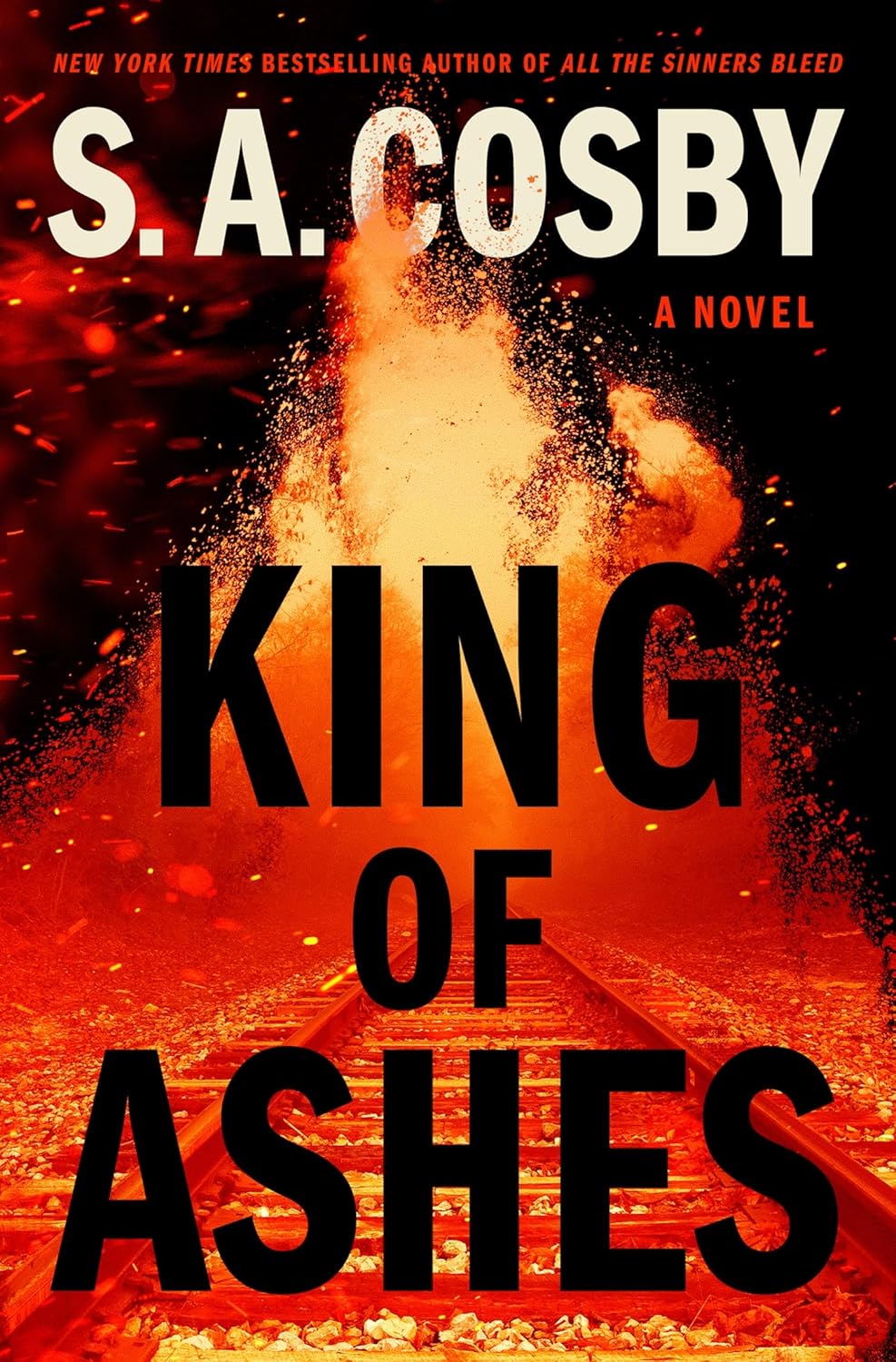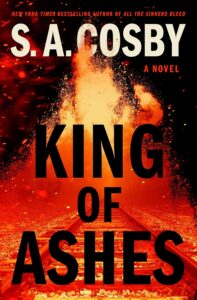Book Summary
In King of Ashes, S.A. Cosby crafts a Godfather-inspired Southern epic centered on Roman Carruthers, a slick Atlanta financial advisor forced back to his decaying hometown of Jefferson Run, Virginia, after his father’s suspicious car accident. What begins as a family obligation spirals into a blood-soaked reckoning when Roman discovers his drug-addicted brother Dante owes $300,000 to the Black Baron Boys—a ruthless gang who’ve already proven they’ll maim and kill to collect. The Carruthers family crematorium, where Roman’s sister Neveah burns bodies by day and hunts for answers about their long-missing mother by night, becomes both sanctuary and weapon in this twisted battle for survival.
Cosby’s pulse-pounding narrative oscillates between Roman’s Faustian bargains with criminals and Neveah’s dogged investigation into family secrets. The crematorium’s furnaces mirror the novel’s central metaphor: “Everything burns”—relationships, morality, and ultimately, the line between savior and monster. While the violence is unflinching, Cosby elevates the genre with lyrical prose and psychological depth, particularly in Roman’s transformation from arrogant outsider to ruthless strategist willing to “cook the books” in every sense.
Key Themes
Family as Both Burden and Salvation: The Carruthers siblings embody different responses to trauma—Roman’s calculated control, Dante’s self-destruction, Neveah’s relentless caretaking. Their shared history (particularly the unresolved disappearance of their mother) becomes a Gothic specter, with rumors suggesting their comatose father may have fed her to the crematorium. Cosby interrogates how far loyalty should stretch, especially when blood ties bind people to cycles of violence.
Economic Desperation Breeds Moral Compromise: Jefferson Run’s poverty-stricken landscape—where legitimate opportunities have dried up—forces characters to weigh survival against ethics. Roman’s financial expertise, once used to enrich Atlanta elites, becomes a tool for money laundering, while Neveah’s affair with a corrupt cop highlights systemic rot. The novel suggests that crime isn’t an aberration but a rational response to a system rigged against the working class.
What Makes It Unique
Southern Gothic Meets Crime Procedural: Cosby merges the atmospheric dread of Flannery O’Connor with the precision of a heist novel. The crematorium isn’t just a setting—it’s a character, its ovens humming with menace and its ashes hiding truths. One standout scene involves gangsters disposing of a body while debating barbecue sauce, blending horror with dark humor.
Antihero Nuance: Unlike typical vigilante stories, Roman isn’t redeemed by his actions. His S&M kink (sessions with dominatrix “Miss Delicate” to atone for guilt) and willingness to exploit the drug trade’s economics make him morally ambiguous. Even his love interest, Jae—the gang leader’s half-sister—questions whether his schemes are about saving family or asserting control.
Reader Reactions
Fans praise Cosby’s gritty realism: “I flew through it in two days—couldn’t put it down even when I needed to breathe.” Many highlight the ending’s emotional wallop: “That last line—’Everything burns’—stayed with me for weeks.” Critics note the unrelenting violence may deter some, but agree it serves the story: “The brutality isn’t gratuitous; it’s the language these characters speak.”
Social media buzz centers on Roman’s complexity, with debates raging about whether he’s a “dark knight” or “just another arsonist.” The audiobook, narrated by Adam Lazarre-White, earns particular acclaim for amplifying the Southern cadences and tension.
About the Author
S.A. Cosby, a New York Times bestselling author from rural Virginia, has been hailed as the “king of Southern noir.” His prior works (Blacktop Wasteland, Razorblade Tears) won multiple awards, including the Los Angeles Times Book Prize. A former mortuary assistant and retail worker, Cosby brings lived authenticity to themes of blue-collar struggle and racial tension.
For King of Ashes, Cosby drew from both Shakespearean tragedy and his own family’s resilience. He notes: “The South breeds storytellers because we’re raised on porch-step tales where laughter and pain sit side by side.” This duality fuels the novel’s blend of poetic reflection and explosive action.
Memorable Quotes
“Shame is a currency here. You either spend it or you bury it deep enough to forget the exchange rate.” — Roman on Jefferson Run’s moral economy
“The difference between justice and revenge? About six hours and a full tank of gas.” — Neveah to Detective Chauncey
“We’re Carruthers. We don’t get happy endings. We get receipts.” — Dante’s bitter realization

